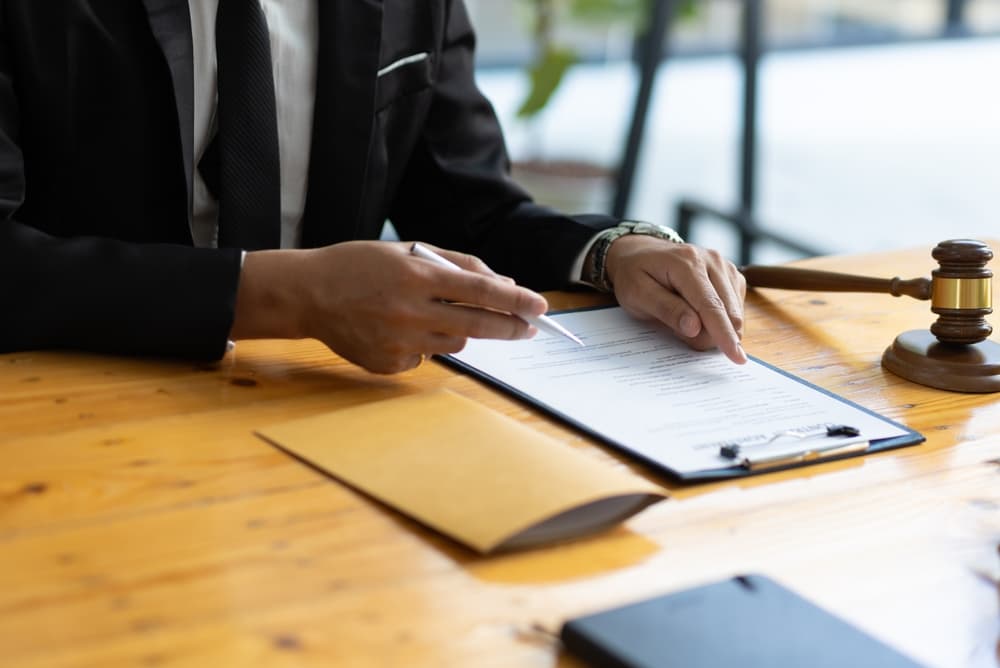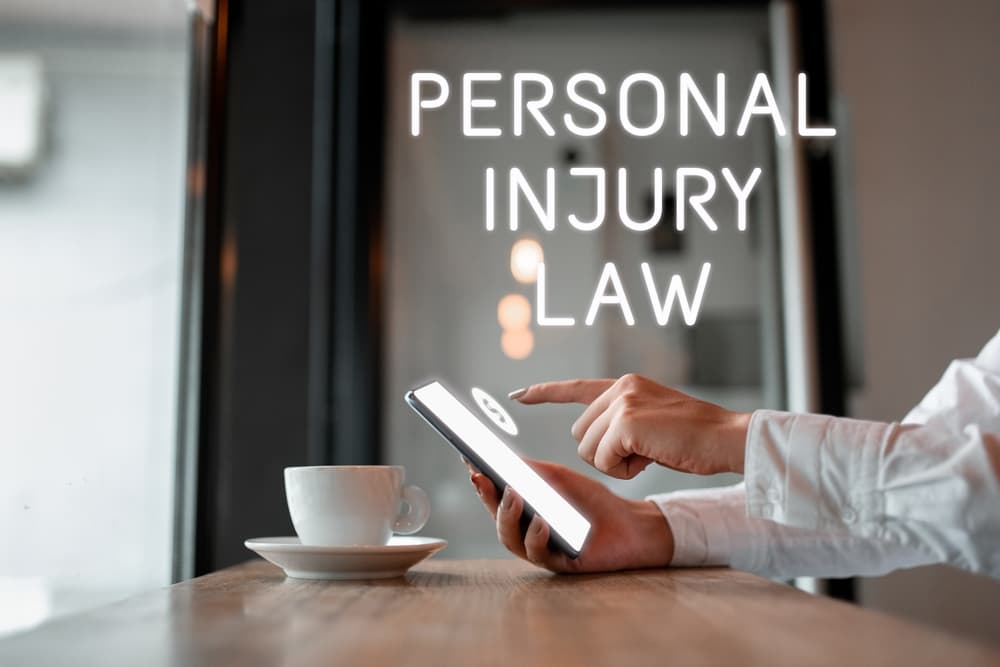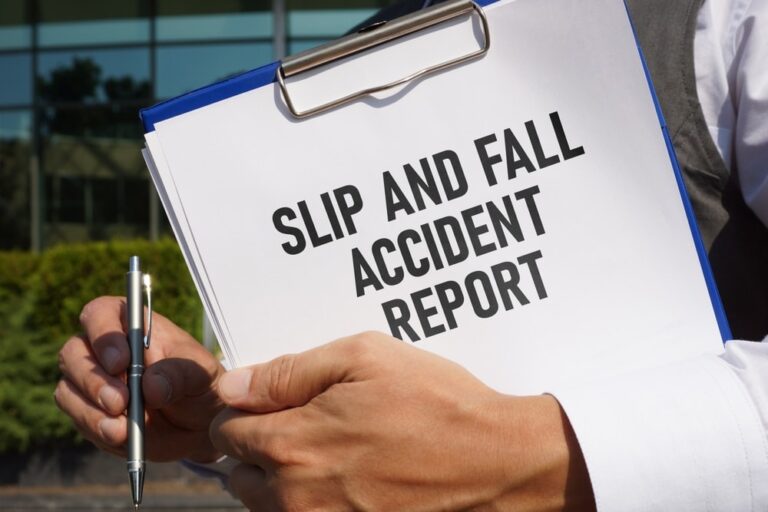Key Takeaways:
- A personal injury lawyer improves your chances of fair compensation.
- Seek legal help quickly, especially with serious injuries or disputed liability.
- Choose a lawyer with personal injury expertise and trial experience.
- Strong case preparation and resources matter more than quick settlements.
- Reputation, accessibility, and trust are key in making the right choice.
If you’ve suffered an injury in an accident that wasn’t your fault, choosing the right personal injury lawyer to represent you is one of the most important decisions you’ll make. The lawyer you hire can make a big difference in the outcome of your case and the compensation you ultimately receive. Let’s go over what to look for when selecting a personal injury attorney and provide tips to help you find the best fit for your needs.
Why Hire a Personal Injury Lawyer?
Before we get into how to choose a personal injury lawyer, let’s discuss why you should strongly consider hiring one in the first place:
- Knowledge of the law: Personal injury law can be complicated. A good personal injury attorney will have in-depth knowledge of the relevant laws and procedures. They can determine the strength of your case and develop the best legal strategy.
- Experience dealing with insurance companies: Insurance companies often try to pay as little as possible on claims. An experienced personal injury lawyer knows their tactics and how to effectively negotiate with them on your behalf.
- Access to resources: Building a strong case may require expert witnesses, accident reconstruction, medical record analysis, and more. An established personal injury law firm will have the resources to thoroughly investigate your case and gather key evidence.
- Contingency fee basis: Most personal injury lawyers work on contingency, meaning they only get paid if they win money for you. There are no upfront fees, so anyone can afford quality representation.
- Peace of mind: Dealing with a serious injury is stressful enough. A trusted personal injury attorney lets you focus on your health and family while they handle the legal process and fight for the compensation you deserve.
Don’t underestimate the difference that hiring the right lawyer can make. Research shows that people represented by personal injury attorneys typically recover significantly more than those who try to handle their claims on their own. It pays to have an experienced professional in your corner.
When to Hire a Personal Injury Lawyer

Ideally, you should consult with a personal injury lawyer as soon as possible after your accident. Important evidence needs to be preserved, and there are deadlines for filing personal injury claims.
You especially need to contact an attorney right away if:
- You suffered severe injuries, or someone died in the accident
- Liability is unclear or being disputed by the other party
- The insurance company is denying your claim or making a lowball settlement offer
- The accident happened in a work or construction zone
- A defective product may have contributed to your injuries
- The other party doesn’t have insurance or has inadequate coverage
Remember, most personal injury lawyers offer free consultations and work on contingency. You have nothing to lose by discussing your situation with an attorney to understand your options. The sooner you get legal representation, the better protected your rights will be.
What to Look for in a Personal Injury Lawyer
Now that we’ve covered why and when to hire a personal injury attorney, here are the key things to look for when choosing one:
Focus on Personal Injury Law
Personal injury law is a highly specialized field. You want an attorney who focuses primarily on these types of cases, not someone who is a jack of all trades. An attorney who focuses on personal injury will have more relevant knowledge and experience to draw upon. They’ll also be current on the latest personal injury legislation and case law developments.
Ask prospective attorneys what percentage of their practice is devoted to personal injury. Do they mostly handle car accident cases or other case types? Have they handled cases similar to yours? The more experience a lawyer has with your specific type of case, the better equipped they’ll be to get you the best outcome.
Strong Track Record
Of course, experience alone doesn’t tell you much if you don’t know the quality of an attorney’s work. Look for a personal injury lawyer with a solid history of success in handling cases like yours. While past results don’t guarantee a particular outcome, they indicate that an attorney can build strong cases and get real results for their clients.
Most personal injury law firm websites have a page highlighting significant case results or testimonials from satisfied clients. You can also find third-party reviews of lawyers you are considering. Don’t just focus on the settlement or verdict dollar amount – also pay attention to what former clients say about the attorney’s skills, dedication, and client service.
Trial Experience
The vast majority of personal injury cases are settled out of court. However, if a fair agreement can’t be reached, you need an attorney fully prepared to take your case to trial. Some lawyers quickly accept lowball offers to avoid a trial at all costs. You want someone who will fight for full value in settlement negotiations but has the experience and skill to present a compelling case to a jury if needed.
Ask the law firms you are considering about their track record of case results, specifically what percentage of their cases are settled vs. going to trial. An attorney with a strong reputation as a trial lawyer is likelier to motivate an insurance company or defendant to settle on favorable terms to avoid facing them in court. If your case does need to go before a jury, you’ll be glad to have a seasoned litigator in your corner.
Resources to Invest in Your Case
Building a strong personal injury case takes a lot of work. Accident scenes need to be thoroughly investigated. Police and medical records need to be tracked down and analyzed. Expert witnesses may need to be hired to provide testimony on accident reconstruction, medical prognosis, economic losses, and more. All of this requires significant financial resources in addition to time and effort.
Unfortunately, some personal injury lawyers run a volume business and don’t invest adequate resources to build the strongest case for each client. They can quickly move on to their next case by accepting the first settlement offer.
You want to choose a law firm with the resources and willingness to invest in doing everything possible to build a compelling case for you. Find out what experts they typically work with and what their process is for case prep and investigation. The stronger your case, the better positioned you’ll be to obtain the full and fair compensation you deserve.
Personal Connection and Accessibility
Personal injury cases can take months or even years to resolve. You will be working closely with your lawyer throughout the process. You should always have a positive rapport and feel comfortable with your attorney. Since you’ll be relying on your lawyer to make important decisions on your behalf, you need to have full trust and confidence in them.
During your initial consultation, pay attention to how well the attorney listens to you and seems to understand your situation. Do they give you their full attention and explain things in a way you can understand? Or do you feel rushed and talked down to? Go with your gut – if something feels off, they may not be the right fit for you.
In addition to personal chemistry, accessibility, and communication style should be considered. Some people want to reach their lawyer directly, while others are fine dealing mostly with a paralegal or associate and getting periodic updates from the lead attorney. Ask about the lawyer’s communication and client service policies. Find out who you will be interacting with and how often you can expect updates.
Depending on your personality and preferences, you may be willing to sacrifice some responsiveness for a busier attorney with more experience. Or you may prioritize finding a lawyer who will give you a lot of personal attention, even if they are earlier in their career. Just make sure you understand what to expect regarding accessibility and communication so there aren’t mismatched expectations down the road.
Reputation and Credibility
An attorney’s reputation and credibility greatly matter in personal injury cases. Lawyers who are well-known and respected in the legal community often get more cooperation from opposing counsel regarding things like scheduling depositions, sharing evidence, and negotiating settlements. A lawyer with a poor reputation or who is seen as difficult to work with can hurt your case by creating unnecessary obstacles and delays.
Do some research on the attorneys you’re considering. Are they members of local and state bar associations in good standing? Have they been recognized with any honors or awards by their legal peers? Do they serve as officers in any trial lawyer organizations or regularly teach CLEs? Are they frequently quoted in the media as a trusted legal source?
You can also ask other attorneys you know (even in different practice areas) if they have heard of the lawyers you are considering and their professional reputation. If a lawyer is well-known and respected among other attorneys and professionals who have experience with them, it’s generally a good sign that they have the skills and integrity to represent their clients effectively.
Disciplinary History
As part of your due diligence, determine whether a prospective personal injury attorney has been subject to any disciplinary actions. Each state bar has an attorney discipline system and makes information about disciplinary history available to the public, typically through an online portal on their website.
Isolated complaints aren’t necessarily a red flag, as even good attorneys can have a misunderstanding with a client. But be wary of a lawyer with a pattern of disciplinary issues or serious infractions like misusing client funds. You should feel confident that your attorney will represent you ethically and always act in your best interest.
What to Expect During Your Case
 Once you’ve chosen your personal injury lawyer, they will guide you through every step of the legal process. They will handle all communications with insurance companies and opposing attorneys on your behalf. They will gather evidence like accident reports, medical records, and witness statements. They will retain well-qualified experts if expert witness testimony is needed to prove liability or damages.
Once you’ve chosen your personal injury lawyer, they will guide you through every step of the legal process. They will handle all communications with insurance companies and opposing attorneys on your behalf. They will gather evidence like accident reports, medical records, and witness statements. They will retain well-qualified experts if expert witness testimony is needed to prove liability or damages.
Throughout the process, your main job is to focus on your medical treatment and recovery. Keep your attorney updated on your treatment and progress. Be open and honest with your attorney, even about facts you think may harm your case. The more your lawyer knows, the better prepared they will be to anticipate challenges and build the strongest case for you.
Most personal injury cases are settled before trial through negotiations between the attorneys. A good lawyer will work diligently to make a strong case for your full damages and negotiate aggressively. They won’t settle without your approval and will give you honest advice about whether an offer is fair or if you should take your case to court.
If your case doesn’t settle and a lawsuit becomes necessary, your attorney will be your advocate at every stage, from filing a formal complaint to conducting discovery to presenting your case to a judge and jury. Fortunately, most personal injury trials are completed within a few days. Throughout the litigation process, your lawyer will keep you informed and consult with you on all major decisions in your case so you can make informed choices.
Hire a Personal Injury Lawyer to Receive the Full Compensation You Deserve
Suffering a personal injury due to someone else’s negligence is often life-changing. The financial losses alone can place a huge burden on you and your household, and many injuries have intangible effects on your life for years.
You shouldn’t have to go through the legal system on your own while trying to recover and put your life back together. The good news is you don’t have to, as the right personal injury attorney is out there to support you.
If you or a loved one has suffered an injury, the single most important decision you can make is to hire a skilled personal injury attorney you can trust to fight for your rights and the full compensation you are owed. Reach out today for a free, no-obligation consultation.




